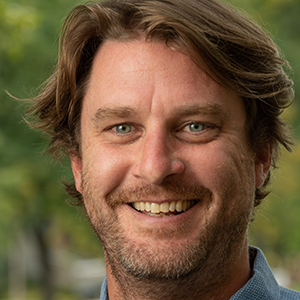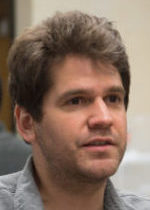
The School of Global Environmental Sustainability at Colorado State University has selected three Global Challenges Research teams and two Resident Fellows across five colleges from a competitive field of proposals. The SoGES awards are intended to encourage interdisciplinary understanding of complex global sustainability issues, foster collaborative cross-campus partnerships and support sustainability research at CSU.
New this year, the Global Challenges Research Teams will be funded for two years, with each team receiving $30,000. The longer timeframe allows teams to better execute planned work and articulate accomplishments.
Steve Simske, professor in the Department of Systems Engineering, will lead a project to explore reusing packaging materials, which is more efficient than recycling.
“One of our goals is to provide a roadmap for how an engaged community can learn to provide higher sustainability,” said Simske, principal investigator for the Re-use Efficiency Packaging with Analytics for Customized Knowledge (REPACK) Global Challenges Research Team. “The SoGES grant really allows us to create the time and energy to dive deeper here than simple band-aid measures, and consider both the big picture and details simultaneously. Having a broad, cross-discipline resource like SoGES is true to a land-grant mission.”
Ed Hall, an assistant professor in the Department of Ecosystem Science and Sustainability, is one of the new resident fellows. He said he’s looking forward to fostering genuine, novel collaborations through SoGES.
“As an assistant professor, it is easy to get focused on my own expertise, but intellectual growth often comes from moving beyond your immediate expertise and outside of your disciplinary comfort zone,” he said.
SoGES Director Diana Wall said that sustainability is at the forefront of public discourse, linking pandemics, the environment, the economy and society.
“Today, we need many creative researchers uniting to share knowledge from many disciplines, to work strategically and collaboratively to address the world’s biggest sustainability challenges,” said Wall, also a University Distinguished Professor. “We are thrilled to recognize so many dedicated faculty and researchers at CSU.”
Global Challenges Research Teams
Measuring carbon footprint of alternative business models in the fashion industry
Principal Investigators: Sonali Diddi, Department of Design and Merchandising; Zac Rogers, Department of Management; Rich Conant, Department of Ecosystem Science and Sustainability; Lumina Albert, Department of Management; and Anders Fremstad, Department of Economics.
The fashion industry is resource-intensive and, with a growing global demand for clothing, it is poised to have continued negative environmental impacts. Increasingly, in recognizing the need to mitigate these impacts, modern textile production systems are beginning to incorporate circular economy principles – restorative and regenerative approaches – in their business strategy. While these alternative modes of production may be sustainable, there is very little empirical research to support these claims.
This team aims to develop a tool to quantify the carbon footprint of at least two different alternate business models and compare them to the traditional, take-make-use-dispose business model of the fashion industry. The team will identify and analyze existing data and tools available to measure carbon footprint. They will develop an online tool powered by real-time information to measure the carbon impact of alternative fashion business models and disseminate these project outcomes within academia and industry.
Resilient Industry Supply Chains (RISC)
Principal Investigators: Erin Arneson, Department of Construction Management; Rodolfo Valdes-Vasquez, Department of Construction Management; and Hussam Mahmoud, Department of Civil and Environmental Engineering.
Climate change amplifies the risk of extreme weather and disaster events, transforming where and how people conduct business around the world. The characteristics that make modern supply chains speedy and cost-effective render global supply chains more susceptible to disaster disruptions. Therefore, to maintain continued economic growth, U.S. industries must adapt global supply chains to become more sustainable and resilient to disaster disruptions.
This project will look at the U.S. roofing industry and develop a framework for empirically assessing its resilience. The team will collect data from regional, national and global roofing industry supply chains and develop a working geospatial model to predict how supply chain disruptions will affect the U.S. roofing industry. The primary objective of this team is to share these findings with the public via an interactive, online map and through published research.
Re-use Efficiency Packaging with Analytics for Customized Knowledge (REPACK)
Principal Investigators: Steven Simske, Department of Systems Engineering; John Macdonald, Department of Management; and Elizabeth Parks, Department of Communications Studies and Dialogue and Diversity Specialist with the Center for Public Deliberation
One of the major sustainability challenges present today is the waste that accompanies packaging, usually corrugated cardboard, from the increased prevalence of online purchasing. However, since the average box contains only 50% recycled materials, half of the fiber must still be produced anew each time a package is shipped. Moreover, online ordering leads to smaller, more frequent one-off orders which require more packaging compared to the bulk orders that are sent to big-box, brick-and-mortar stores and then resold. Given these factors, reusing packaging materials is more efficient than recycling.
This project will explore the development of a label designed to track reused packaging, investigate means to drive supply chain adoption and explore how branding affects community participation, thus improving the sustainability of the growing e-commerce industry.
SoGES Resident Fellows
Ed Hall
assistant professor, Department of Ecosystem Science and Sustainability
Freshwater aquaculture, a potential sustainable solution to meet growing food demands, can have a substantial negative effect on surrounding freshwater ecosystems. Ed Hall will establish the first set of science-based sustainability standards to mitigate the impact of net-pen aquaculture on inland water ecosystems by examining aquaculture operations on Lake Yojoa, a large tropical lake in Honduras. He will work closely with several stakeholders: a major producer of tilapia, a large tilapia importer and local watershed managers who work to mitigate the impact of human activities on the lake.

Ed Hall
By synthesizing legacy and contemporary datasets from Lake Yojoa, Hall will be able to assess the impact of aquaculture on the Lake Yojoa ecosystem and compare the impact of net-pen aquaculture with the impact of all other activities within the watershed. In concert with the groups mentioned above, Hall will work to establish a series of standards that can be applied industry-wide to mitigate the impact of inland water aquaculture and create a more sustainable freshwater aquaculture industry. Hall’s time as a Resident Fellow will demonstrate the power of fundamental ecosystem science to create sustainability practices that have large societal benefits.
Johnny Plastini
assistant professor and area coordinator of printmaking, Department of Art and Art History
This project will employ visual communication strategies that poetically and effectively convey the reality of our current climate crisis through artistic activity and creative research. Johnny Plastini will document through photos biological indicators of pollution and climate change across the Western United States, including ramalina menziesii, a lace lichen along the Northern California Coast, and caloplaca candelariella, a common crustose lichen along the Colorado Front Range and Alpine Tundra ecosystems.

Johnny Plastini
Plastini’s project will be printed on handmade recycled papers via photo-lithographic and post-digital technologies that focus on sustainable printmaking processes. The entire finished series of 100 to 200 prints will be exhibited in May 2021 in Fort Collins, Colorado. This fellowship aims to solidify a meaningful project within the local and regional community, then apply a similar research model with opportunity for growth at future residencies and fellowships in various international locations.
About the School of Global Environmental Sustainability
The School of Global Environmental Sustainability is at the core of a growing number of exciting sustainability initiatives in research, education, and engagement at Colorado State University. SoGES serves as a hub to connect CSU’s community of scholars and practitioners interested in applying interdisciplinary perspectives to large-scale environmental, economic, and social questions not easily addressed through traditional approaches. For more information, go to sustainability.colostate.edu.